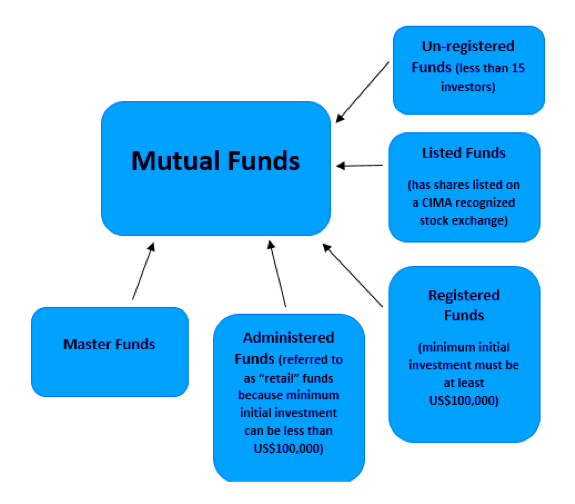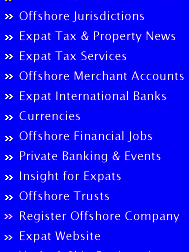Cayman Islands Trust Law Overview
The Cayman Islands are well known for their strong trust laws attracting individuals and businesses looking to set up trusts. These trusts offer a versatile legal structure that can meet various estate planning and asset safeguarding requirements. Through my exploration of the complexities of trust law I’ve discovered that the Cayman Islands create a setting that is both safe and flexible. Their legal framework is tailored to address situations allowing people to secure their assets while adhering, to global guidelines.
Types of Trusts in the Cayman Islands

The Cayman Islands provide a range of trust options, each designed to fulfill specific objectives. Here are a few of the most prevalent types:
- Discretionary Trusts: These trusts give the trustee discretion over how to distribute the trust’s assets among beneficiaries. It’s an excellent choice for those who want to provide for family members but prefer not to specify exact amounts or times.
- Fixed Trusts: Unlike discretionary trusts, fixed trusts specify exactly how the trust’s assets are to be distributed among beneficiaries. This type of trust is ideal if you want clear, predetermined distributions.
- Charitable Trusts: These trusts are set up to benefit charitable organizations. They offer a way to support causes you care about while also providing potential tax benefits.
- Purpose Trusts: A relatively unique option, purpose trusts are not established for the benefit of individuals but for specific purposes, such as maintaining a family estate or supporting a cause.
Selecting the appropriate trust for your situation hinges on your individual requirements and aspirations. In my view a carefully selected trust can offer reassurance and advantages in handling assets while also helping you achieve your personal goals.
Key Features of Cayman Islands Trusts

The Cayman Islands offer trusts that have several appealing characteristics which make them highly desirable.
- Flexibility: Cayman trusts are highly adaptable, allowing for a range of structures and provisions to meet various needs.
- Confidentiality: The Cayman Islands offer strong privacy protections, ensuring that the details of your trust and its beneficiaries remain confidential.
- Asset Protection: Cayman trusts can provide robust protection against creditors and legal claims, making them an excellent choice for safeguarding assets.
- Tax Efficiency: The jurisdiction offers favorable tax conditions, including no direct taxes on income, capital gains, or inheritance, which can be highly advantageous for estate planning.
- Experienced Trustees: The Cayman Islands are home to many experienced trust service providers who can offer professional management and advice.
Throughout my exploration of global trust regulations I have frequently witnessed how these aspects enhance the attractiveness of Cayman trusts. They offer a strong basis for efficient estate planning and safeguard the management of your assets with security and effectiveness.
Trust Formation and Administration
Establishing and managing a trust in the Cayman Islands can be an easy but careful undertaking. I have assisted numerous clients in this regard and the initial step involves selecting the appropriate type of trust that suits their objectives. Lets delve into the details of the process.
- Trust Deed: The foundation of any trust is the trust deed, a legal document outlining the terms and conditions of the trust. This document must be clear and comprehensive, detailing how assets are to be managed and distributed.
- Trustee Selection: Choosing the right trustee is crucial. Trustees are responsible for managing the trust’s assets according to the terms of the trust deed. Many opt for professional trustees in the Cayman Islands due to their expertise and experience.
- Asset Transfer: Assets must be formally transferred into the trust. This step involves legal and administrative processes to ensure that ownership is correctly transferred and documented.
- Ongoing Administration: Once established, the trust requires regular administration. This includes managing investments, keeping accurate records, and making distributions as specified by the trust deed.
From my perspective the seamless functioning of a trust relies on careful preparation and continuous oversight. A trust that is well managed not safeguards assets but also upholds your wishes. The Cayman Islands trusts backed by a strong legal system provide a reliable foundation for efficient asset management.
Tax Implications and Benefits
The Cayman Islands trusts are known for their favorable tax advantages. These benefits can be considerable, particularly for individuals seeking to enhance their estate planning strategies. Here are the key points to keep in mind:
- No Direct Taxes: The Cayman Islands do not impose taxes on income, capital gains, or inheritance. This absence of direct taxes can lead to substantial savings, particularly for high-net-worth individuals.
- Tax Neutrality: Trusts established in the Cayman Islands are generally considered tax-neutral in most jurisdictions. This means that the trust itself does not attract taxes, though beneficiaries might need to consider their own tax obligations in their home countries.
- Estate Planning Benefits: By placing assets into a Cayman trust, individuals can effectively manage their estate, reduce estate taxes in their home country, and ensure that their wealth is preserved and distributed according to their wishes.
Based on what I’ve seen the tax benefits provided by Cayman trusts play a role in their attractiveness. Nonetheless it’s crucial to collaborate with advisors who can help navigate the intricacies and ensure adherence, to global tax regulations.
Regulatory Framework and Compliance
The regulatory landscape in the Cayman Islands is structured to uphold the functioning of trusts within a clearly established legal framework. It is essential to comprehend and comply with these rules to safeguard the authenticity and efficiency of a trust. Below is a summary of key points.
- Trust Law: The Cayman Islands Trusts Law governs the creation and administration of trusts. This law provides a clear structure for how trusts should be managed and outlines the duties and responsibilities of trustees.
- Anti-Money Laundering (AML) Regulations: The Cayman Islands has strict AML regulations to prevent illegal activities. Trustees must conduct due diligence on trust clients and beneficiaries to comply with these regulations.
- Regulatory Bodies: The Cayman Islands Monetary Authority (CIMA) oversees financial services, including trust companies. Compliance with CIMA’s guidelines is essential for operating a trust in the jurisdiction.
- Regular Reporting: Trustees are required to maintain accurate records and submit periodic reports. This transparency helps ensure that trusts are managed in accordance with the law and the terms of the trust deed.
Based on what I’ve seen grasping the rules and regulations is crucial for effectively managing a trust. While the Cayman Islands offer a secure and well overseen setting it’s vital to stay updated and adhere to the regulations to ensure your trusts lasting success.
Common Uses of Trusts in the Cayman Islands
Trusts established in the Cayman Islands serve diverse purposes, each customized to address unique requirements. Based on my observations clients frequently seek out Cayman trusts due to their adaptability and benefits. Here are several typical applications.
- Estate Planning: Many people use Cayman trusts to manage and distribute their estates. By placing assets in a trust, you can ensure that your wealth is passed on according to your wishes while potentially minimizing estate taxes.
- Asset Protection: Trusts are a powerful tool for protecting assets from creditors and legal claims. This is particularly useful for high-net-worth individuals who want to safeguard their wealth from potential legal disputes.
- Wealth Management: Trusts can be used to manage investments and other assets on behalf of beneficiaries. This can help in preserving and growing wealth over time, ensuring that the assets are handled prudently.
- Philanthropic Endeavors: Charitable trusts are popular for those looking to support causes they care about. They allow for structured donations and can offer tax benefits while making a positive impact.
- Family Wealth Preservation: Trusts are often used to manage family wealth across generations. This can help maintain family assets and ensure that they are distributed according to family members’ preferences.
I believe that Cayman trusts are highly flexible and can be beneficial for different financial approaches. If you want to safeguard your assets or organize your estate Cayman trusts provide a variety of choices to suit your requirements efficiently.
Choosing a Trust Service Provider
Choosing the right trust service provider is essential for managing your trust effectively. Drawing from my experiences here are some important factors to keep in mind.
- Experience and Expertise: Look for providers with a solid track record and extensive experience in managing trusts. Their expertise will be invaluable in navigating complex trust structures and regulations.
- Reputation: A reputable provider will have positive feedback from clients and a strong presence in the industry. Researching their reputation can give you insights into their reliability and quality of service.
- Services Offered: Ensure that the provider offers the specific services you need. This may include investment management, legal advice, and administrative support.
- Personal Compatibility: Trusts are often a deeply personal matter. Choose a provider who understands your goals and communicates effectively, ensuring a good working relationship.
- Fees and Costs: Understand the fee structure and any additional costs involved. Transparent and reasonable fees are essential to avoid unexpected expenses down the line.
In my view selecting the provider is crucial. A reliable trust service provider will not only handle your trust matters efficiently but also provide insights to assist you in reaching your financial objectives.
Frequently Asked Questions
Here are a few frequently asked questions regarding trusts in the Cayman Islands along with responses drawn from my personal insights.
- What is the main advantage of setting up a trust in the Cayman Islands? The main advantages are tax efficiency, privacy, and strong asset protection. The Cayman Islands offer a favorable environment for managing and protecting assets.
- Can I be both a trustee and a beneficiary of my own trust? Yes, you can. Many people choose to be both a trustee and a beneficiary, particularly in discretionary trusts, as it allows for more control over the assets.
- How often do I need to update my trust? It’s a good practice to review and update your trust periodically, especially after major life events such as marriage, divorce, or the birth of children.
- Are there any restrictions on who can be a trustee? Trustees must be competent and trustworthy individuals or professional entities. They must also comply with local regulations and standards of conduct.
- What happens if a trustee fails to fulfill their duties? If a trustee fails to fulfill their duties, legal action can be taken. This may involve removing the trustee and seeking compensation for any losses incurred.
These frequently asked questions tackle issues and shed light on the functioning of Cayman trusts. Gaining a grasp of these matters can assist you in making choices and ensuring the effective administration of your trust.
Conclusion
Throughout my exploration of Cayman Islands trust law I’ve witnessed how these trusts can be instrumental in safeguarding and managing assets. Whether you aim to simplify estate planning protect your wealth or contribute to charitable endeavors Cayman trusts provide a unique combination of security and adaptability. Their notable attributes like tax advantages and robust confidentiality make them appealing to a wide audience. Nevertheless selecting the trust type and a trustworthy service provider is essential to maximize these benefits. With meticulous preparation and guidance a Cayman Islands trust can serve as a foundation for efficient asset management and wealth protection.

